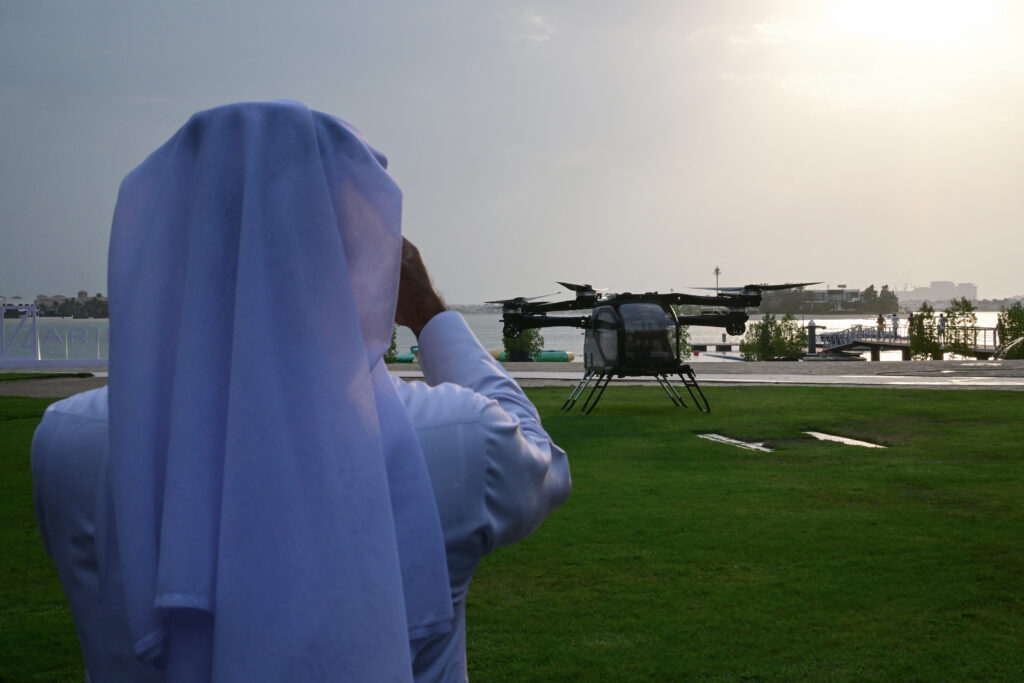
- 06 Dec 2018
[Transsystemic Law] The Vietnam and Arab-Israeli Conflicts: International Legal Migrations, Comparisons, and Connections
| This talk can be viewed here: | For more photos of this event, please click on the photo below. |
 |
About the Workshop
The wars fought in Vietnam and the Middle East in the 1960s and early 1970s were not just physical confrontations. They were also battles of ideas, including legal ideas. To justify their decisions to resort to the use of military force and to use that force in particular ways, the United States, North Vietnam, South Vietnam, Israel, Egypt, Syria and other parties to these conflicts appealed widely to international laws and customs. These appeals rested not only on settled understandings of the relevant international law, but also on legal interpretations that attempted to shift those understandings. Moreover, the legal arguments advanced in one place (Vietnam or the Middle East) often had significant purchase in the other place.
This workshop seeks to examine in greater depth some of the international legal justifications both for the resort to force and for the conduct of hostilities that emerged during the Second Vietnam War and the 1967 and 1973 Arab-Israeli wars. These wars set legal precedents for the justification of violence that changed the face of armed conflict, and these precedents matter for why and how war is waged today. The workshop will pay particular attention to the connections between these two conflicts. Justifications made in one conflict had an effect on the justifications made in the other, and legal ideas around the acceptable use of force migrated and mutated between the two conflicts.
Click HERE for the conference programme.
Keynote Lecture: How International Law Evolves: Norms, Precedents and Geopolitics
Without the benefit of international governmental institutions, the development of international law
depends on agreement, patterns of practice, and criteria of reasonableness. Such a dynamic is especially
evident with respect to the evolution and history of the law of war. In contemporary contexts, the
international legal norms that exist are often modified or extended by informal lawmaking processes.
These processes circumvent and enlarge the legal conceptions surrounding the use of force in the UN
Charter and contemporary jurisprudence.
In this evolving reality, the interaction of highly visible international law conflicts plays a central
role, emphasizing the lawmaking roles of precedent, reason, and geopolitics, and explaining ensuing
controversies as to the content of the law because of the lack of authoritative decisions with respect to
the distinction between violating and creating law in international conflict situations. A comparison of
the Vietnam War and the Arab/Israeli Conflicts between 1961-1973 is illustrative of this dynamic.
Speaker: Professor Richard Falk
Richard Falk is Albert G. Milbank Professor of International Law and Practice Emeritus,
Princeton University and currently Research Fellow, Orfalea Center of Global Studies,
UCSB. He was UN Special Rapporteur for Occupied Palestine, 2008-2014. In 2017 he
co-authored a UN report entitled “Israeli Practices towards the Palestinian People and
Question of Apartheid” that generated controversy and widespread discussion. He is
Senior Vice President of the Nuclear Age Peace Foundation, and previously Chair of its
Board, 2005-2012. Falk directed a project on ‘Climate Change and Democracy’ under
the auspices of the Orfalea Center at UCSB, and is currently directing a project on the
peaceful resolution of the Qatar Crisis.
Panel Discussion One: The Vietnam War
1. International Law in Public Debates about the Vietnam War
Between 1965 and 1968, the Lawyers Committee Concerning American Policy in Vietnam, scholars
including Richard Falk and John Norton Moore, the US State Department and a number of others
engaged in a measured and committed public debate over the legality of the war in Vietnam. Carried
out in the pages of publications such as the Yale Law Journal and Dissent magazine, this debate did not
capture the imagination of a wider public. There were not, between 1965 and 1968, the same kinds of
claims of ‘illegality’ in public debates about the Vietnam War that there were, for example, in relation to
the 2003 Iraq War. Nor have the 1965-68 debates taken a significant place in contemporary international
law scholarship on the use of force, despite the resonance of many of the legal considerations of the
Vietnam War with conflicts since that time. This paper examines these US debates over the legality
of the Vietnam War with two aims. First this paper seeks to understand the terms of these debates:
what were the legal arguments of Falk, Moore, the State Department and others, and what kinds of
broader impacts can these debates be said to have had? Second, this paper places these debates in a
wider historical context relating to international law in public debate in order to better understand how
international law was constructed for different publics during this period of the Vietnam War.
Speaker: Dr Madelaine Chiam
Madelaine Chiam is a lecturer at the La Trobe Law School in Melbourne, Australia. She
researches primarily in public international law, and is particularly interested in the histories
of international law, the relationships between the global and the local, and the role of
international law in public debate. Madelaine’s most recent publications include the entry,
‘Monism and Dualism in International Law’ in the Oxford Bibliographies in International
Law, and ‘Tom Barker’s “To Arms!” Poster: Internationalism and Resistance in First
World War Australia’ in the London Review of International Law (2017). Madelaine holds
a BA/LLB(Hons) and a PhD from the University of Melbourne, and an LLM from the
University of Toronto.
2. The Logic of Reprisal in US Vietnam War Policy Debates
In the dominant strand of post-1945 legal opinion, the UN Charter made reprisals involving the use
of force obsolete. The Charter, with its prohibition on the use of force unless approved by the UN
Security Council or used in self-defence, seemingly had no place for this old-world tool of statecraft.
Against the lawyers, however, arose a brand of strategic thinker that saw reprisals—understood as
discrete and fitting responses to particular acts of violence—as particularly suited to Cold War situations
requiring some force, but not so much as to provoke all-out war.
One such thinker, Thomas Schelling, thought the August 1964 American airstrikes on North Vietnamese
patrol boats and naval installations delivered a neatly tailored message in response to the Gulf of
Tonkin incidents: “it was as an act of reprisal—as a riposte, a warning, a demonstration—that the
enterprise appealed so widely as appropriate.” But if the logic of reprisal drove this action, as well as
other key US policies and targeting directives during the Vietnam War, the language of reprisal was
often shunned. Lawyers within the Johnson Administration consistently argued against laying bare the
logic of reprisal underlying US policy, and a key plank in their argument was the official US opposition
to Israeli reprisal raids in the Middle East. This paper examines the trajectory of those internal US
government deliberations, and assesses their significance in terms of broader debates over the legitimate
use of force in world politics.
Speaker: Dr Brian Cuddy
Brian Cuddy is a historian of twentieth century international politics and U.S. foreign
relations, and an associate lecturer in security studies at Macquarie University in Sydney,
Australia. He received his Ph.D. from Cornell University in August 2016. His dissertation,
“Wider War: American Force in Vietnam, International Law, and the Transformation of
Armed Conflict, 1961-1977”, examined both how law influenced American conduct of the
Indochina conflict and how the application of force by the United States in Vietnam
reshaped the legal architecture of war.
Panel Discussion Two: The Arab-Israeli Conflict
1. Legality Of Military Action by Egypt and Syria in October 1973
The military force initiated by Egypt and Syria in October 1973 was directed against Israeli forces that
had been in unlawful occupation of territory of Egypt and Syria since the June 1967 Middle East war.
As of 1973, Israel remained in occupation of Egypt’s Sinai Peninsula and of Syria’s Golan Heights.
The matter was immediately discussed in the UN Security Council. There no state other than Israel
suggested that Egypt or Syria should be condemned for aggression. The Security Council had, only a
few weeks earlier, considered a draft resolution in which it would have said that it “Strongly deplores
Israel’s continuing occupation of the territories occupied as a result of the 1967 conflict, contrary to the
principles of the Charter.” That resolution was approved by thirteen members of the Security Council
but was not adopted owing to a veto cast by the United States. After the October 1973 hostilities, the
Security Council called for a settlement based on its November 1967 Resolution 242. Given that Israel’s
act in 1967 of occupying the two territories was unlawful, and given the fact that the Security Council
had failed in its obligation to reverse that illegality, the military action by Egypt and Syria cannot be
considered aggression. While their action did violate ceasefire resolutions the Security Council had
adopted in 1967, it was not an unlawful use of force.
Speaker: Professor Emeritus John Quigley
John Quigley is Professor Emeritus at the Moritz College of Law of the Ohio State
University in Columbus, Ohio, USA. He is a specialist in public international law, having
instructed in that subject since 1971. He has authored a dozen books in that field of
law and several hundred scholarly articles. Recent books on the law relating to the
use of force by states in international law include: The Six-Day War and Israeli SelfDefense:
Questioning the Legal Basis for Preventive War; The Genocide Convention: An
International Law Analysis; Genocide in Cambodia: Documents from the Trial of Pol
Pot and Ieng Sary. Recent books on the Palestine-Israel conflict include The International
Diplomacy of Israel’s Founders: Deception at the United Nations in the Quest for
Palestine; and The Statehood of Palestine: International Law in the Middle East Conflict.
2. War Against the People and the People’s War: Palestine and International Humanitarian Law in the 1970s
In May of 1974, just after the first session of the International Committee of the Red Cross Diplomatic
Conference on the revision of international humanitarian law had come to a close, Israeli war-planes
obliterated much of the Nabatieh refugee camp in Lebanon, then home to around 3,500 Palestinian
refugees. According to the standard account of the Diplomatic Conference, “the victims of wars were
largely forgotten” during the drafting process (as a Red Cross observer put it at the time) as delegates
from national liberation movements focused their energies on extending international status to wars of
national liberation and securing privileged belligerent status for anti-colonial fighters.
This paper challenges this standard story through a detailed account of the Palestine Liberation
Organisation’s discourse, both within the conference and outside it. In particular, we focus on the PLO’s
account of what was necessary to ensure what its delegate to the conference Chawki Armali called
the “protection of the civilian population against the atrocities committed by colonialist and racist
powers.” The PLO’s account of civilian protection differed starkly from that put forward by the major
military powers and Israel, who argued that only the principle of distinction and the codification of a
proportionality standard would protect civilians from harm. Rejecting the assumption that civilians were
simply the collateral damage of contemporary conflicts, the PLO argued that the Palestinians were faced
with a war against the people, to which the only response was a people’s war.
Speaker: Dr Jessica Whyte and Dr Ihab Shalbak
Jessica Whyte is Senior Lecturer in Cultural and Social Analysis at the University of
Western Sydney, Australia and an Australian Research Council DECRA Fellow. She
is a political theorist whose work integrates political theory, intellectual history and
political economy to analyse contemporary forms of sovereignty, human rights and
humanitarianism. Her work has been published in a range of fora including Contemporary
Political Theory; Humanity: An International Journal of Human Rights, Humanitarianism
and Development; Law and Critique; Political Theory; and Theory and Event. Her first
monograph, Catastrophe and Redemption: The Political Thought of Giorgio Agamben,
was published by SUNY in 2013. Her forthcoming book, The Morals of the Market:
Human Rights and the Rise of Neoliberalism will be published by Verso in 2019. She is
currently working on a three-year Australian Research Council-funded project, “Inventing
Collateral Damage: The Changing Moral Economy of War.
Ihab Shalbak is currently a Visiting Research Fellow at the University of Sydney. He
works at the intersection of intellectual history, the sociology of knowledge and political
theory. His research examines the relation between dominant forms of knowledge and
politics, and he has written on think tanks, human rights NGOs, and on the development
of American Pragmatism. He has previously worked as a lecturer in the Master of Human
Rights, and a coordinator of the Social Justice Research Network, both at the University
of Sydney, and as a Senior Research and Policy Advisor at the Australian Human Rights
Commission. Ihab’s latest publications include ‘The Birth of the Think Tank: RAND and
the Development of a Technocratic Worldview’ in The Triumph of Managerialism: New
Technologies of Government and their Implications for Value, Rowman and Littlefield
(2018), and ‘Hegemony Thinking: Detour Through Gramsci’ Thesis Eleven Journal (2018).
He is currently working on a book project that traces the emergence of the think tank
form.
Panel Discussion Three: The Precedential value of the Vietnam War and the Arab-Israeli Conflict
1. The Vietnam War and the Civilian/Combatant Distinction in International Humanitarian Law
This paper will discuss the effect of the Vietnam War on the construction of the civilian/combatant
distinction in the 1977 Additional Protocol I, arguing that before the Protocol was drafted there was
no accepted definition of civilians in international law, and only minimal protection for civilians. At the
same time, there were clear rules about combatant status, which excluded most ‘irregular belligerents’
from the protection of the laws of armed conflict. Moreover, international lawyers generally agreed, and
accepted, that irregular warfare would necessarily endanger civilians.
When, however, states met to draft the new Additional Protocols, Third World and socialist states,
such as North Vietnam, challenged this understanding and proposed new laws that protected national
liberation movements, their guerrilla fighters and surrounding civilians. Meanwhile, the US, and other
Western states, found it hard to defend laws and military actions which had caused widespread public
outrage. As a result, after many compromises, new definitions of civilians and combatants were agreed
upon – though later rejected by many states. Nevertheless, despite this opposition, by the end of the
twentieth century these definitions were regarded as part of customary international law.
Speaker: Dr Amanda Alexander
Amanda Alexander is a lecturer at the Australian Catholic University. Her research deals
with the history of international humanitarian law, focusing on the process of change
within international law. Her recent publications include A Short History of International
Humanitarian Law in the European Journal of International Law, International Law,
Postcolonialism and the Geneva Protocol I in the Melbourne Journal of International
Law, and ‘The Good War’: Preparations for a War against Civilians in Law, Culture, and the
Humanities.
2. “The Third World is a Problem”: Arguing about the Laws of War after the Fall of Saigon
Following the Fall of Saigon in 1975, debates on the laws of war among lawyers serving in the U.S.
Government shared a common theme: the Third World was a problem. The UN Charter, which had
been invoked to provide a legal basis for the U.S. intervention in defence of South Vietnam in 1966 was
suddenly described as a “suicide pact.” There was a marked shift in the discourse on the use of force.
The law had to be reformed if it was to remain credible. How did this shift, in which the UN Charter
was no long viewed as being fit for purpose, occur?
This paper revisits critiques of the laws of war that emerged in the 1970s, and argues that the shift
occurred for two reasons: bitterness over the loss of the war in Vietnam and the success of national
liberation struggles. It argues that prominent U.S. lawyers in the Carter and Reagan administrations did
not like the look and orientation of the United Nations after decolonization because it was viewed as
being anti-American and pro-Soviet. Accordingly, the U.S. began to move away from law-making in UN
forums by advancing legal justifications for employing force outside the Charter in smaller subgroups of
likeminded states; a pattern that continues today
Speaker: Dr Victor Kattan
Victor Kattan is a Senior Research Fellow of the Middle East Institute at the National
University of Singapore (NUS). He is also an Associate Fellow of NUS Law. Victor has
published widely in his field and is the author of numerous articles in international law
journals and the author of two books: From Coexistence to Conquest: International Law
and the Origins of the Arab-Israeli Conflict 1891 – 1949 (Pluto 2009) and The Palestine
Question in International Law (BIICL 2008). Victor is Area Advisor for Islam, the Middle
East, and International Law for Oxford Bibliographies in International Law.
Victor has taught courses at Yale-NUS College, NUS Law, and the Centre for International
Studies and Diplomacy at the University of London’s School of Oriental and African
Studies (SOAS). In 2017, Victor was announced the winner of the Asian Society of
International Law Younger Scholar Prize. His latest publication is “The ‘Netanyahu
doctrine’, The National Security Strategy of the United States of America, and the
invasion of Iraq” which was published in the Satvinder Juss (ed), Human Rights and
America’s War on Terror, Routledge 2018.
Conference Covenors
Victor Kattan, Senior Research Fellow, Middle East Institute, National University of Singapore.
Brian Cuddy, Associate Lecturer, Department of Security Studies and Criminology, Macquarie University, Australia.
About the Speakers
Event Details
Block B, 29 Heng Mui Keng Terrace
Singapore 119620



